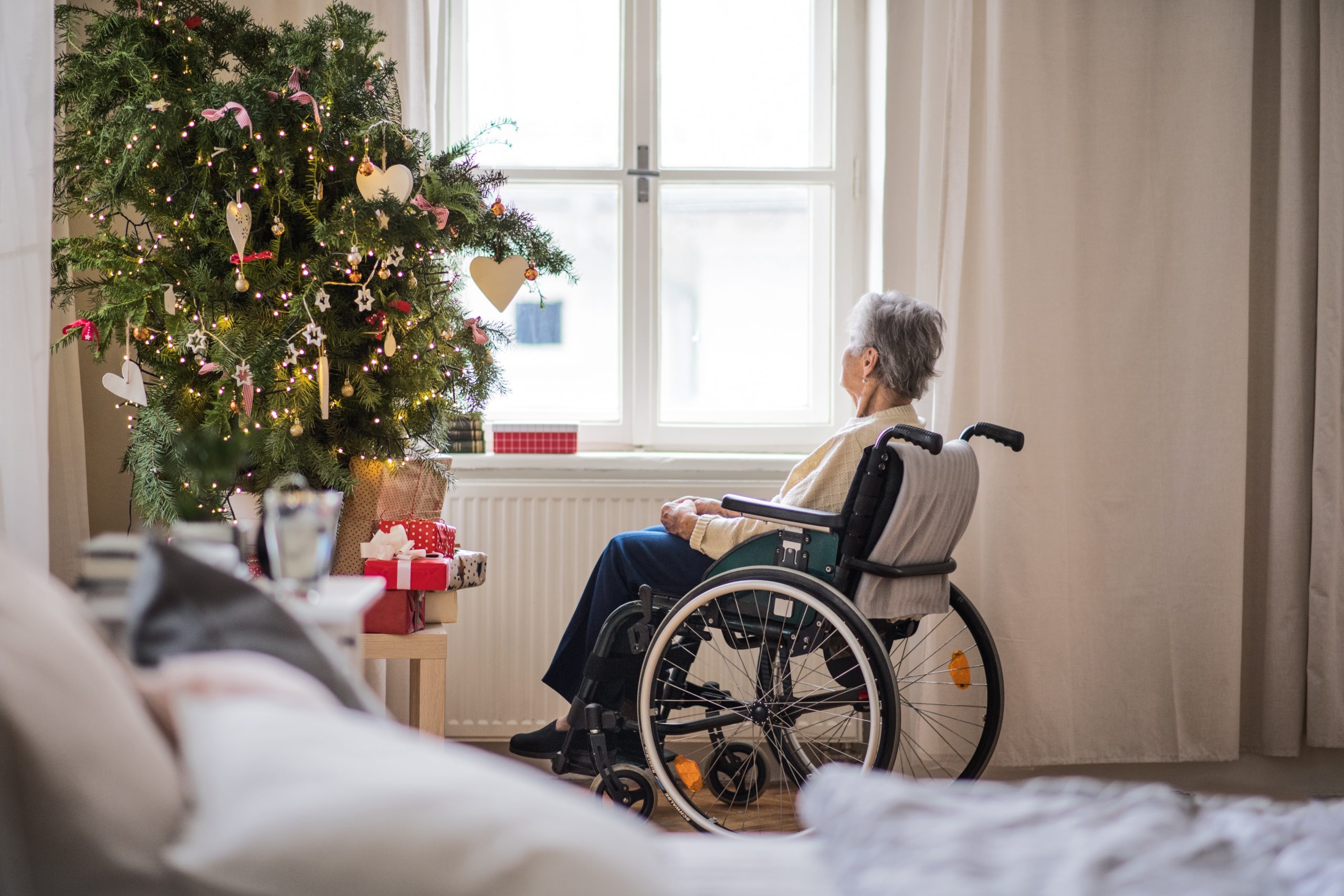The holidays are considered a time for family, sometimes begrudgingly, and sometimes joyously. But not everyone has family. For those who don’t, it’s difficult to feel sorry for those who do but look upon family gatherings with trepidation, or as something to be gotten through. In light of that, maybe being alone isn’t such a bad thing . . . In fact, let’s talk about being alone versus being lonely. Let’s also talk about dealing with what is, as opposed to what we think something should be.
Loneliness is something that can happen in isolation and within a crowd. Being alone, on the other hand, doesn’t necessarily equate to something negative. Just because the sky is grey on a rainy day, doesn’t mean it can’t be beautiful, but seeing it that way requires an attitude of mind that runs counter to our natural responses.
For some people, being alone is when they are the most peaceful—not having to deal with the intrusions of other people or family bickering. There are those who can provide their own entertainment and don’t necessarily need the company of other people. However, there can be too much of a good thing. Being completely isolated is not a sustainable ongoing condition. People are social beings, hardwired for human contact—even if it’s limited.
If you’re among those who prefer being alone, chances are, it’s something you’ve taught yourself to accept based on life experiences and perhaps disappointing interactions with family growing up (which tends to spill over to other people).
There are those who simply require one close friend. But what if that friend has a family of their own to be with. The truth is that most of us prefer to have company. A new AARP Foundation survey found that 67% of adults feel happy when thinking about spending time with family and friends this holiday season. 31% of those surveyed said that they’ve felt lonely during the holiday season sometime during the past five years, and 41% have worried about a family member or friend feeling lonesome.
AARP’s survey was administered in support of Connect2Affect, which is the Foundation’s long-term commitment to help end isolation and build the social connections older adults need to thrive.
A joint effort between the Gerontological Society of America, Give an Hour, the National Association of Area Agencies on Aging, and UnitedHealth Group, Connect2Affect (www.connect2affect.org) features tools and resources to determine the risk of isolation risk while finding practical means to connect with the community. A self-assessment test asks yes or no questions relating to relationships, mobility, and major life changes, with responses that offer encouragement and additional information.
How to reduce holiday depression and stress
With the holidays nearly upon us, it may be unlikely for those who will be alone to make fundamental changes in lifestyle. If you’re among those who will be alone, it helps in the run-up to the holidays to prepare yourself mentally to avoid depression. If you do find yourself feeling depressed, there is a simple mental exercise you can perform that can be quite magical. Simply look at yourself in the mirror and say with conviction, “I’ll have to get over this sometime, why not now? Of course, the trouble with magic is that sometimes it works and sometimes it doesn’t. So why not prepare a holiday survival kit with things you enjoy (in moderation, of course).
Solitary holiday survival kit
If you have a service such as Netflix, you binge-watch feel-good movies. When watching television, the brain releases dopamine, “the feel-good” chemical. Nothing makes time go faster than binge-watching TV. However, too much can leave you depressed afterward and looking for another fix. Do it in moderation by determining the number of shows you will watch.
Comfort foods can also be a part of your holiday survival kit. As Mark Twain once said, “The secret of happiness is to eat whatever you want and let the food fight it out inside.” This is bad advice if you have certain food restrictions. Don’t violate them. Plan meals and snacks with foods that you can digest without issue. After all, you don’t want what should be a pleasure to feel like a punishment.
Family gatherings
If your family is a source of stress, here are a couple of simple rules that can help you get through it and maybe even enjoy yourself. First and foremost, you don’t have to react to, or address everything said. There was a time in America when there were two subjects that were taboo if you wanted to get along with other people: politics and religion. These days, politics is a subject that you and yours may never agree on. It’s too divisive and trying to win such an argument is futile, and not conducive to a pleasant family dinner. Rule 1. No discussion of politics allowed. Rule 2. Do not break rule 1. Rule 3. If someone breaks Rule 1, do not respond. Change the subject.
If you’d rather not be alone, put yourself out there
For those who are divorced, widowed, or an empty-nester, the holidays can trigger various types of mental health issues. However, science tells us that there is an easy fix. Engage in activities that help you do good. Science has shown that those who give back experience not only mental health benefits but physical benefits as well. A 2019 study published in the Journals of Gerontology found that widowed people who volunteered for two hours a week or more felt less intense loneliness.
Doing something for someone else can give you a new lease on life. It’s much like bringing a puppy into a home with an older dog. Animal behaviorists have noted that the elder dog doesn’t feel replaced, but rather rejuvenated by having a young pup to teach the ropes to. And like our canine friends, we too are “pack animals.” You can learn about volunteer opportunities at shelters, food pantries, children’s hospitals, animal rescue centers (hence the dog analogy), and more through your place of worship or via local listings.
If you find yourself alone during the holidays, New Wave Home Care is always here for you.







